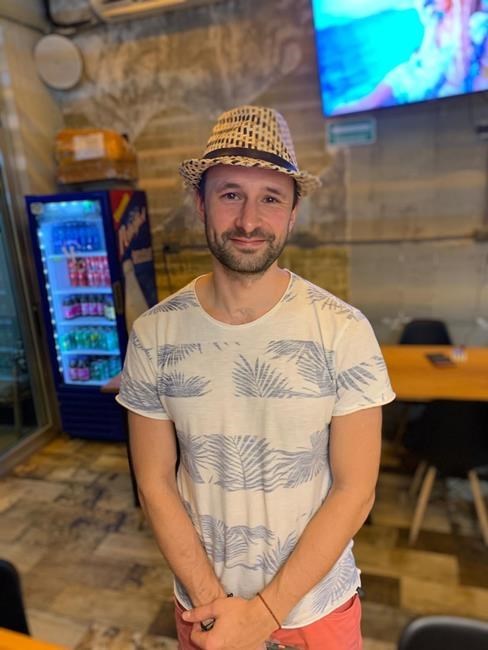Prior to the pandemic, Artem Polyvyanny used to choose where he wanted to live and work pretty much on a whim.
“Africa was going to be a place I wanted to go but it’s mostly closed, Asia is almost completely closed too,” says the 34-year-old from Toronto. He had settled on going to Europe to see friends, but had to change plans recently as countries there began to implement new COVID-19 lockdowns.
He now finds himself in Mexico, a destination that came about through a process of elimination.
“I can’t go to many of the places I want to go.”
Canadians living the digital nomad lifestyle say remote work in foreign countries has become cheaper as a result of the pandemic, but the freedom to go where they wish has been heavily limited.
Digital nomads, who often freelance or work remotely full-time, are accustomed to a lifestyle where they can pick and choose where they’d like to live. However, travel restrictions are one of the biggest changes they’ve had to come to terms with.
Polyvyanny says what he loses in choice, he’s getting back in value as the price of housing and flights has dropped dramatically as regular tourist traffic plummets across the world.
He snagged a one-way ticket from Toronto to Playa del Carmen for only $170, and was able to negotiate prices while picking a place to stay.
Vanessa Perez, a freelance marketing consultant from Montreal, says she was used to working abroad for seven months every year prior to the pandemic.
This year, she worked in Paris for only one month in September. She made the choice to travel to Western Europe because she felt governments there were more serious about implementing safety measures for COVID-19.
It’s not a typical destination for digital nomads, who usually opt for cheaper regions like Southeast Asia where they have the added benefit of a favourable currency exchange rate.
Perez, who previously lived in Columbia and El Salvador, says it was worth the extra cost to continue the nomadic lifestyle.
Now back in Montreal, Perez says she’s planning to work abroad in February, but is careful about committing.
“I can’t buy a ticket now for February because I don’t know how things will even turn out in December,” she says, adding that insurance coverage and visa restrictions are a constant concern.
“It’s day to day, week to week to see what will be the next step.”
For Canadians, Mexico has proven to be a convenient destination where a visa is easy to come by.
Lisa Shiller, a Torontonian who currently lives in San Miguel de Allende, Mexico, said she’s able to live in the country with a six-month tourist visa that she received on arrival.
She said renewing her visa is as simple as leaving the country and coming back again, which is much cheaper during the pandemic because of lower living costs.
“Mexico has this stance where it’s like, ‘yes, come here, bring your dollars, spend your money,’” said Shiller, who has lived in Mexico throughout the pandemic, only returning home once after seven months to renew her visa.
But she said the lifestyle isn’t quite the same, as she's avoiding air travel and can't explore the country like she had planned to. The silver lining is that she’ll save more money and can still travel by vehicle.
Polyvyanny, who returned to Toronto at the start of the pandemic, says he decided to go back to Mexico because he felt it wasn’t worth spending so much to live in Canada’s largest city when most events are cancelled and city life is disrupted.
“Pretty much all of the good things about Toronto were taken away,” he says.
“There’s no reason to pay a premium on everything if I’m not able to enjoy this city.”
This report by The Canadian Press was first published Dec. 1, 2020.
Salmaan Farooqui, The Canadian Press



